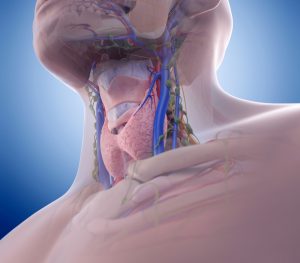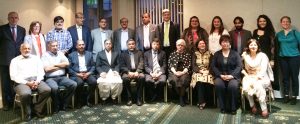Mining Finance Continuing Professional Development Courses
Imperial College offers a range of continuing professional development (CPD) training courses through the Centre for Professional Development. These provide a comprehensive guide to understanding the main factors involved in securing the financial support for mining projects through equity, debt, or entering into a joint venture. This involves addressing the underlying technical principles, applying these to mineral projects and demonstrating how these influence the financial modelling.
The programme attracts a wide international participation from professionals from the financial institutions as well as the minerals industry. In addition to the long-standing ‘Introduction to Mining for Bankers’ course that runs in July each year, we also run the Metals and Energy Finance course. Launched in November 2016, this new, modular course in mining and energy finance identifies and examines the investment opportunities offered across the extractive industry’s cycle, from exploration through evaluation, pre-production, development and production. The course addresses the similarities of a range of mineral and petroleum projects while identifying their key differences.
There is a growing recognition that conventional engineering must be blended with financial engineering with many mining operations at the transition from open pit to underground mining based on sub-level, panel and block caving methods. The tradition in the mining industry is to fund these types of projects from the cash flow generated by an existing operation. The alternative is to ring-fence the project as a discrete investment based on allocation of capital made up of a combination of debt and equity and then to demonstrate the level of return that can be generated. In any geared financial model the use of debt in funding the capital expenditure permits discounting based on an equivalent to the corporate cost of capital which should further enhance NPV. This results in much greater transparency in decision-making which must enhance business development. The CPD courses also cover the transition from technical and financial to business leadership roles in the mining industry.
There is an important narrative around timing where delay in initiating development of the underground mining will result in a fall-off of ore to the plant which adversely impacts on cash flow. Some develop a shaft system based on cash flow generated from the open pit operation while others make use of debt in funding major programmes of capital expenditure. Where shaft sinking has been funded from equity this should allow treatment of this major cost as sunk capital that provides early access to the ore. As a consequence delays in pre-production infrastructure production during construction will be short and ramp-up to full production will be steep.
The courses include a session on the feasibility study. The traditional engineering approach will simply treat this as a study which determines if a project is technically possible. Any investment in a mining project needs, however, to generate a revenue stream that not only covers the cost of extraction but also an Internal Rate of Return (IRR) that exceeds the discount rate selected. In the case of a major mining company this would be the corporate cost of capital. If the IRR does not exceed the corporate cost of capital then it would not be feasible to proceed with the investment in the project as mining is not then a commercially viable option.
If debt is to be used and project finance arranged then the investment banks and independent engineers will be involved in construction monitoring. Once the project is brought on stream the independent engineers will again audit actual performance against design expectations. A major mining company with existing production capabilities would be in a better position to ensure economic completion tests will be passed on time. Loans will then go non-recourse on schedule and future risk is then shared with the investment banks. Those elements will be included in the courses.
Where project finance is used and the lending goes non-recourse the only remaining security for the investment bank is the ore reserve. The role of ore resource evaluation in mining finance will therefore be reviewed. This material together with the concepts involved in project finance is also covered in the EduMine on-line course “An Introduction to Modelling Metal Project Finance” which will be made available to delegates prior to the start of the course.
The key theme emerging within the mining industry is the role of technical innovation needed to release value through replacing labour intensive mining methods with mechanisation. Before the full productivity from the investment in equipment can be achieved, given the level of technical sophistication involved in a modern mechanised mining operation, skilled human resources are needed and these aspects are also covered in the courses. Significant technical risk is often associated with the performance of the processing plant and to reduce this the design must take into account the specific mineralogical characteristics of the ore. The courses therefore include an introduction to extractive metallurgy.
All deposits will eventually be mined out so the role of exploration and evaluation must be part of the narrative and this cycles back to the Value Creation session covered in the courses – geologists must be supported in their exploration efforts.
Workshop sessions are also an integral part of the course delivery and use will be made of the IC-MinEval software which automates the generation of Excel™-based spreadsheets to produce models for a wide range of mineral projects. These models can be saved as fully-linked workbooks and continued use is quite independent of the software. Attendees can generate their own models which can be preserved indefinitely and have normal Excel functionality.
Analysis will be undertaken during the workshop sessions on the financial performance indicators generated and there will also be a determination of the valuation that could be placed on the asset. Sensitivity analysis will be undertaken on key variables. Consideration will also be given to the role of financial models in identifying those technical variables that have the greatest impact on financial performance and then back-engineering that to the corresponding technical risk.
Upcoming courses
Introduction to Mining for Bankers 3- 5 July
Metals and Energy Finance course, 20-24 November 2017
Please see our website for further information.







 “Design, Code, Test, Repeat! Saturday was a busy day – we ran our first course on Android development and introduced the participants to the basics of coding and building mobile apps. The main aim of the course was to make it clear that anyone, anywhere can create and publish an Android mobile application – it really isn’t that complicated and there are plenty of resources out there to help you. Most of the tools are free!
“Design, Code, Test, Repeat! Saturday was a busy day – we ran our first course on Android development and introduced the participants to the basics of coding and building mobile apps. The main aim of the course was to make it clear that anyone, anywhere can create and publish an Android mobile application – it really isn’t that complicated and there are plenty of resources out there to help you. Most of the tools are free!